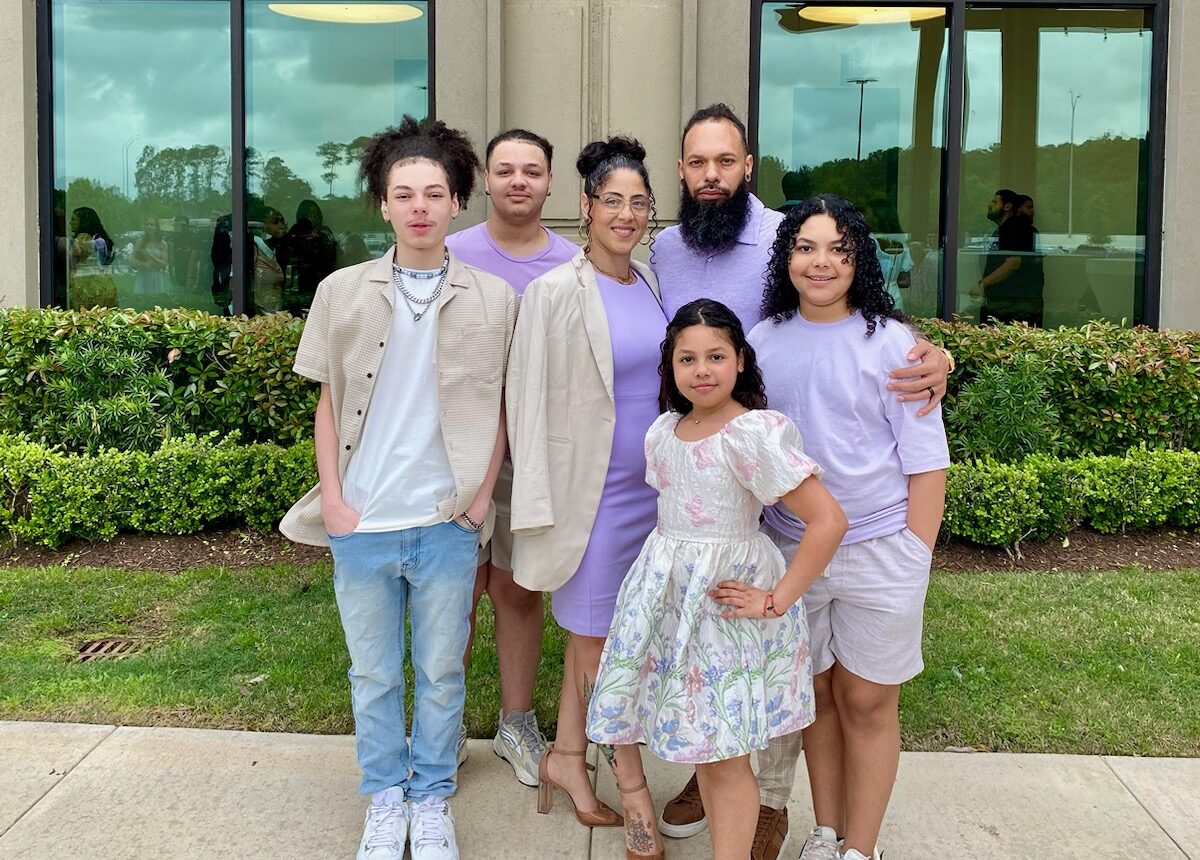Being a Military Spouse Was Harder Than Serving in Army, Veteran Says
Before Aleasha Brown was a mom married to a service member, she was an Army staff sergeant. As she adapted to the unpredictable and often lonely role of military spouse, she leaned heavily on her service training.
Aleasha enlisted in the Army Reserve in 2000 at age 17. She was seeking better opportunities than she could find in her small Tennessee hometown.
Initially, she served as a military police officer. After 9/11, her role changed to heavy-equipment operator, and her unit was sent to Hawaii for combat training in preparation for deployment to Iraq in support of Operation Iraqi Freedom.

The Aloha State was an ending and a beginning for Aleasha.
While there, she met a Marine who had just returned from an 18-month deployment in Iraq. Then, days before her unit shipped out for Iraq, she fell off the back of a truck. Her injuries meant she could not deploy.

Today, she is a disabled veteran, but she and the Marine, Kori Brown, are married and have four children who range in age from 10 to 19. Kori, too, is a disabled veteran.
Aleasha received an honorable discharge in 2004 after serving four years. Kori – who was stationed at the White House on 9/11 and then with a squadron early in the invasion of Iraq – separated from the Marine Corps in 2004. The couple welcomed their first child in 2005.
At the time, the Brown family was living in Tennesse, and Kori was working as a police officer at a nuclear facility. He missed the military, and he and Aleasha agreed he would re-enlist as a chaplain’s assistant in an Army Reserve unit.
When the family made a PCS move to Fort Bragg, now Fort Liberty, in North Carolina and Kori deployed to Afghanistan for a year, Aleasha truly experienced life on the roller coaster that military spouses ride.
“As soldiers, we’re taught to overcome and adapt,” she said. “As a military spouse, you’re pulled away from family to raise your family without knowing anybody, and then your husband gets taken away (for training or deployment).”
The difference, she said, is that the military prepares service members to be resilient.
“The wife doesn’t get credit at all,” she said. “You get no training and no compensation, but you suffer so much to make your family survive because your husband decided to fight for our country.”
She and her children celebrated holidays and birthdays without Kori. She consoled them as they said goodbye to friends and encouraged them as they started new schools.
“The military life is nonstop, and your children endure that, too.” she said. “It’s a life not everyone understands.”
While Kori was deployed, Aleasha spent days without hearing from him or knowing where he was.
“(As a military spouse) you get no training and no compensation, but you suffer so much to make your family survive because your husband decided to fight for our country.” – Aleasha Brown, Army veteran and military spouse
She watched cars pass down the street and prayed they weren’t carrying officers coming to deliver news that would devastate her family or a neighbor’s.
“Scared is knowing if your husband is coming back home, but you can’t let your kids see that,” she explained. “You’re putting on a persona all day long for your children, but at nighttime you’re alone. It’s just you and your thoughts. You’re living every day in the unknown.”
Today, Kori is medically retired after 13 years of combined service in the Marines and Army, and the family makes its home in Houston, Texas. He lives with PTSD and lingering effects of a broken ankle, shrapnel wounds, and back injuries suffered when an IED blast blew him out of a truck.
They cherish their friendships with other military families, and they focus on giving back to the military community.
Since Kori retired, he and Aleasha and their sons and daughter spend time serving other military families through volunteer efforts at Operation Homefront’s Back-to-School Brigade® and Holiday Meals for Military events.
While living on base, they relied on both programs. Now, they enjoy interacting with other service members, and they can share stories of setting their pride aside and asking for help.
“We’ve taught our children that this is how you’re supposed to give back, and we’re a military-friendly family,” Aleasha said. “Our vision in life was to serve others. That’s why we joined the military.”
The Brown family faced challenges in their transition to civilian life because of the time it took for Kori’s full benefits to come in. They struggled with food and housing insecurity, experiences shared by a significant number of military famiies, according to a March 2024 report from the Blue Star Families Military Family Lifestyle Survey.
The survey found that almost two-thirds of veterans faced a difficult transition from military to civilian life. Of active-duty enlisted families who responded to the survey, one in four reported experiencing food insecurity, and almost three-quarters struggled with housing affordability.
Aleasha said she hopes donors understand the value of their contributions that make Operation Homefront’s programs possible.
“It’s a blessing,” she said. “When people care enough to help us, it makes us feel appreciated and tells us that somewhere out there somebody does care.”

